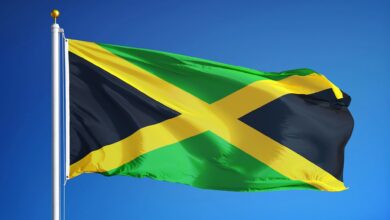ADOLESCENT pregnancy in the Caribbean could decline by 20 per cent between 2015 and 2019 if an initiative by the United Nations Population Fund (UNFPA) and the Caribbean Community (CARICOM) succeeds.
Last year, UNFPA and Caricom unveiled a strategic framework aimed at reducing the number of unwanted pregnancies in countries of the English and Dutch-speaking Caribbean.

Dr Babatunde Osotimehin, executive director of the UNFPA, said it is estimated that approximately 20 per cent of women in the Caribbean have had at least one child by the age of 19, with some giving birth before the age of 15.
“Adolescent pregnancy is intertwined with issues of human rights. A pregnant girl who is pressured or forced to leave school, for example, is denied her right to an education. A girl who is forbidden from accessing contraception or even information about preventing a pregnancy is denied her right to health,” Dr Osotimehin said in the document's preamble.
But Osotimehin believes that once a girl enjoys the privilege of having a good education, high rates of pregnancy are likely to diminish.
“Conversely, a girl who is able to enjoy her right to education and stays in school is less likely to become pregnant than her counterpart who drops out or is forced out. The enjoyment of one right thus puts her in a better position to enjoy others. From a human rights perspective, a girl who becomes pregnant, regardless of the circumstances or reasons, is one whose rights are undermined,” he said.
The new framework is expected to guide Caribbean countries in their development of long-term plans to deal with adolescent pregnancies.
According to the framework document, by 2019 all adolescent girls and boys, by at least age 10, ” should have access to age-appropriate comprehensive sexuality education.”
“All governments should implement social protection mechanisms for the prevention of all forms of violence against adolescent girls and boys, especially those impoverished. The governments in the English and Dutch-speaking Caribbean should adopt legal standards concerning ages of marriage, consent, prosecution of perpetrators of sexual violence and access to social protection and sexual and reproductive health services. By 2019 the governments in the English, French and Dutch-speaking Caribbean should be exchanging knowledge, information, and adopt good practices in addressing social determinants of adolescent pregnancies,” the document outlined.
But, for the reduction to be achieved, the framework outlines that governments must establish a country baseline for each of the indicators.
It said: “At the country level a national multi-sectoral commission will oversee the planning and implementation of activities, inform key decison makers on progress, and advocate for action and adequate investment. Monitoring of progress will be based on annual country-based work cards.
Additionally, documentation of good practices that lead to the reduction of adolescent pregnancies in other countries are expected to be shared among other Caribbean nations. Such practices include the centres for adolescent girls and mothers and the re-integration policy for the return of school-age mothers to school in Jamaica and St Kitts and Nevis, as well as the health and family life education programmes in Trinidad and Tobago, Barbados and other countries.
Each country is also expected to identify a ministry that will be overseeing the work of the commission. The framework stated that all ministries involved will be implementing the sector-based efforts required for obtaining accelerated progress in the reduction of adolescent pregnancy and report to the national commission on progress and challenges in implementation and obtaining tangible results.
Caricom, along with the Organisation of Eastern Caribbean States, is expected to contribute to the standardisation of laws, policies and programmes of countries in the Caribbean which are linked to the stategic framework aimed at reducing adolescent pregnancies.
It is expected that the private sector will sponsor the initiative and see it as corporate social responsibility.
BY KIMBERLEY HIBBERT Observer staff reporter hibbertk@jamaicaobserver.com






